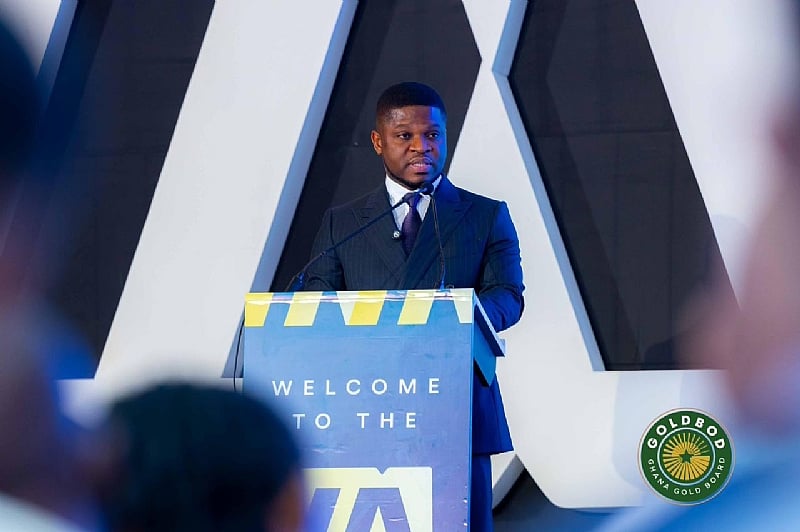The Ghana Gold Board (GoldBod), a recently established statutory body tasked with aggregating and marketing Ghana’s gold resources, has stepped into the forefront of the nation’s ongoing battle against illegal mining, locally known as galamsey. Acting Chief Executive Officer, Sammy Gyamfi, vehemently defends the organization against accusations of exacerbating the problem, emphasizing GoldBod’s substantial contributions to anti-galamsey initiatives within its short lifespan. He highlights the provision of five Toyota Hilux pickup trucks and a GHS 5 million donation to the National Anti-Illegal Mining Operations Secretariat (NAIMOS), the agency spearheading the fight against illegal mining. Gyamfi asserts that this level of support, delivered within just five months of GoldBod’s inception, surpasses any other institution’s contribution to the cause, demonstrating the Board’s commitment to curbing the destructive practice.
Gyamfi underscores the fallacy of blaming GoldBod for a problem that has plagued Ghana for decades, predating the Board’s existence. He argues that the presence of galamsey prior to GoldBod’s establishment clearly demonstrates that the organization is not the root cause. Instead, he positions GoldBod as a critical partner in the effort to eradicate illegal mining, supporting the mandate of existing agencies like the Ministry of Lands and Natural Resources and the Minerals Commission. He explains that the Gold Board Act explicitly directs the agency to promote sustainable mining practices and complement the efforts of these primary stakeholders, bolstering the national fight against galamsey.
The core of GoldBod’s operations resides in formalizing and regulating the gold trade, aiming to create a transparent and accountable system that disincentivizes illicit activities. Gyamfi explains that GoldBod’s role in the gold-trading space makes it a natural ally in combating galamsey, providing the logistical and financial resources to strengthen enforcement and promote responsible mining practices. He reiterates that GoldBod’s mandate focuses on supporting sustainable mining initiatives and environmentally sound gold extraction, thereby contributing to a more regulated and responsible gold sector.
Gyamfi’s defense of GoldBod highlights the complexities of addressing deeply entrenched illegal activities like galamsey. He argues that simply blaming a newly established institution overlooks the systemic nature of the problem and the need for a multi-faceted approach. His emphasis on collaboration and support suggests a strategy that leverages GoldBod’s resources and expertise to bolster the efforts of existing agencies, rather than duplicating or undermining their work. This collaborative approach aims to create a more effective and unified front against illegal mining.
Furthermore, Gyamfi’s comments shed light on the challenges of transforming an informal and often illicit sector into a regulated and legitimate industry. The existence of galamsey for decades points to the deeply ingrained nature of the practice and the socio-economic factors that perpetuate it. GoldBod’s intervention represents an attempt to address this challenge by providing a formal channel for gold trading, potentially diverting miners away from illegal operations and towards a more sustainable and legal livelihood. This approach requires not only enforcement but also the development of alternative economic opportunities and the promotion of responsible mining practices.
Ultimately, the success of GoldBod’s efforts will depend on the effectiveness of its collaboration with other stakeholders and its ability to influence the broader gold mining landscape. The organization’s focus on providing resources and support to frontline agencies like NAIMOS, coupled with its mandate to promote sustainable mining practices, offers a potential pathway towards a more regulated and environmentally responsible gold sector in Ghana. The challenge lies in translating this potential into tangible results, reducing the prevalence of galamsey, and fostering a more sustainable future for Ghana’s gold mining industry.


